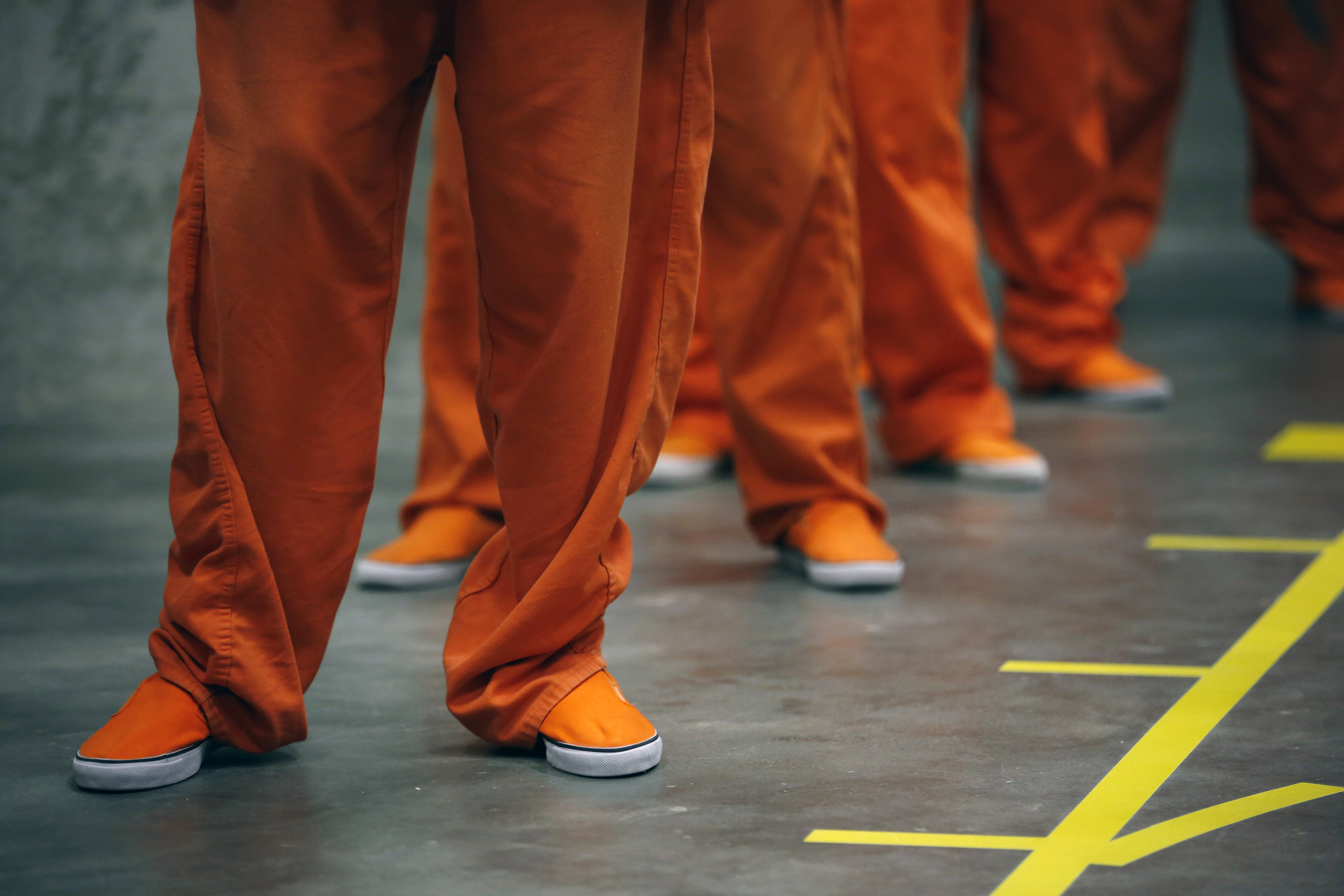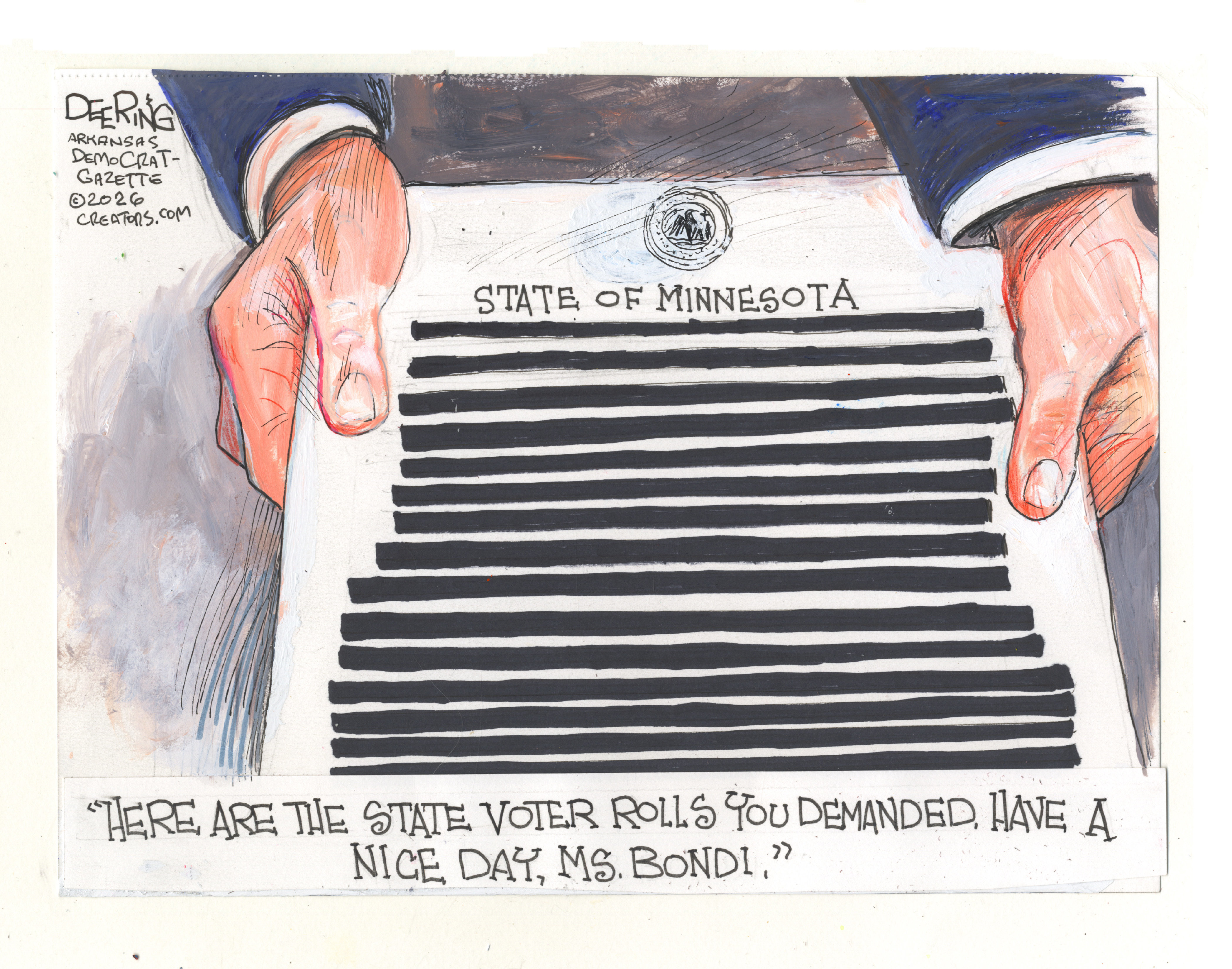How a 26-year-old white woman died a horrible death in an American jail
Even white people can't escape the hellscape that is America's jail system


American jails are a hellscape of abuse, medical neglect, and preventable suicide. And because they house those who have been arrested but not convicted or sentenced, very often it's the legally innocent who suffer. Mass incarceration is slowly fading — but without serious jail reform, abuses will continue to pile up even as fewer people are going through the jail system.
Consider the case of Madaline Pitkin, whose grim, days-long slide into death was recently featured in The Oregonian. She was a 26-year-old heroin addict, pulled over for a routine traffic stop in 2014, and then arrested for an outstanding warrant. She quickly became ill, and despite repeatedly begging for medical attention in writing, eventually died from untreated complications of heroin withdrawal. She was never convicted of a crime.
For the past couple years, Black Lives Matter activists have been arguing that African-Americans are disproportionately abused by the criminal justice system. They are completely correct about this. The statistics are undeniable. Yet Pitkin's fate provides another window into the system — through the other end of the telescope, as it were.
The Week
Escape your echo chamber. Get the facts behind the news, plus analysis from multiple perspectives.

Sign up for The Week's Free Newsletters
From our morning news briefing to a weekly Good News Newsletter, get the best of The Week delivered directly to your inbox.
From our morning news briefing to a weekly Good News Newsletter, get the best of The Week delivered directly to your inbox.
If we imagine someone least likely to be abused by the cops and courts, Pitkin had all the right identity markers. She was young, white, and pretty. She lived in the supposed left-wing utopia of Portland, Oregon. She was from a middle-class family that loved her and tried to help her after she was jailed. She got busted for a crime — drug possession — that is in the process of becoming de-stigmatized as a medical problem rather than a criminal one. She even tried to get help the "right" middle-class way, submitting her requests with the correct paperwork. Though very rich white-collar criminals get better treatment, she's still about as sympathetic as inmates come.
What's more, heroin withdrawal is an extremely simple problem to treat. If the notorious private contractor doing medical services for the Washington County Jail at the time had simply injected Pitkin with a couple bucks' worth of buprenorphine when her symptoms didn't quickly clear up, it's a virtual certainty she'd be alive today. (Though The Oregonian does not specify why she wasn't bailed out, the fact that her bail was set at a deranged $44,444 may have something to do with it.)
But they didn't, and so Madaline Pitkin is dead. As I learned with Sierra Zurn, it turns out that underfunded, poorly managed county jails can sometimes be just as brutally merciless to white people as they are to blacks — and it's very likely the Washington County Jail is one of the better ones.
Of course, the lesson to draw from those anecdotes is not some "All Lives Matter" nonsense. Instead, one should think that if a middle-class white person can get it that bad, imagine how much worse it must be for black high school dropouts, who are incarcerated something like 100 times more frequently.
A free daily email with the biggest news stories of the day – and the best features from TheWeek.com
That brings me to Mississippi, where a great many of those poor black people live. There, the slow decline of mass incarceration has turned into a fiscal crisis for many rural counties, as Ryan Grim reports. It turns out many of those counties have grown to depend on warehousing thousands of state prisoners, for which they are paid a daily fee. With the slow decline of mass incarceration, local officials are loudly talking up the economic benefits of having tons of people in cages, most of them black — where, in a grim echo of history, they can be forced to work for little or nothing.
Respecting the constitutional rights of prisoners is important, and doubly so for jail inmates, the large majority of whom have not been convicted of a crime. But it's also expensive. Threadbare counties in the Deep South looking to boost their incarcerated populations solely to make some cash is just about guaranteed to lead to even more abuse and death. That's the attitude that puts the suicide rate in jails at 46 per 100,000, as of the most recent statistics. That's over three times that of state prisoners and 3.5 times that of the general population. Of the 967 people who died in jail in 2013, 738 had not been convicted of a crime.
And lo and behold, Mississippi's jails are also brimming over with nightmarish stories. The ACLU recently settled a lawsuit against a local town for running an illegal debtor's prison. Here's a guy who died after being arrested for stealing a lawnmower. Here's a guy who died serving a sentence for marijuana possession. Here's a woman who died from heroin withdrawal. Here's a diabetic who died from lack of insulin. And on, and on, and on.
The criminal justice system is the bedrock of American government. But without a genuine respect for due process, and proper funding thereof, it can become a brutal micro-tyranny.
Editor's note: This article originally misstated the name of the jail where Pitkin died. It has since been corrected. We regret the error.
Ryan Cooper is a national correspondent at TheWeek.com. His work has appeared in the Washington Monthly, The New Republic, and the Washington Post.
-
 Political cartoons for January 30
Political cartoons for January 30Cartoons Friday's political cartoons include redacted rolls, a CBS snafu, and fascist fashion
-
 Getting behind the wheel of the Dacia Duster in the Agafay Desert
Getting behind the wheel of the Dacia Duster in the Agafay DesertThe Week Recommends An off-road adventure in Morocco provided the perfect opportunity to test drive the newly launched hybrid SUV
-
 Norway’s scandal-hit royals
Norway’s scandal-hit royalsIn the Spotlight Rape trial of Marius Borg Høiby, son of the crown princess, adds to royal family's ‘already considerable woes’
-
 'Once the best in the Middle East,' Beirut hospital pleads for fuel as it faces shutdown
'Once the best in the Middle East,' Beirut hospital pleads for fuel as it faces shutdownSpeed Read
-
 Israeli airstrikes kill senior Hamas figures
Israeli airstrikes kill senior Hamas figuresSpeed Read
-
 An anti-vax conspiracy theory is apparently making anti-maskers consider masking up, social distancing
An anti-vax conspiracy theory is apparently making anti-maskers consider masking up, social distancingSpeed Read
-
 Fighting between Israel and Hamas intensifies, with dozens dead
Fighting between Israel and Hamas intensifies, with dozens deadSpeed Read
-
 United States shares 'serious concerns' with Israel over planned evictions
United States shares 'serious concerns' with Israel over planned evictionsSpeed Read
-
 Police raid in Rio de Janeiro favela leaves at least 25 dead
Police raid in Rio de Janeiro favela leaves at least 25 deadSpeed Read
-
 Derek Chauvin's attorney files motion for new trial
Derek Chauvin's attorney files motion for new trialSpeed Read
-
 At least 20 dead after Mexico City commuter train splits in overpass collapse
At least 20 dead after Mexico City commuter train splits in overpass collapseSpeed Read
